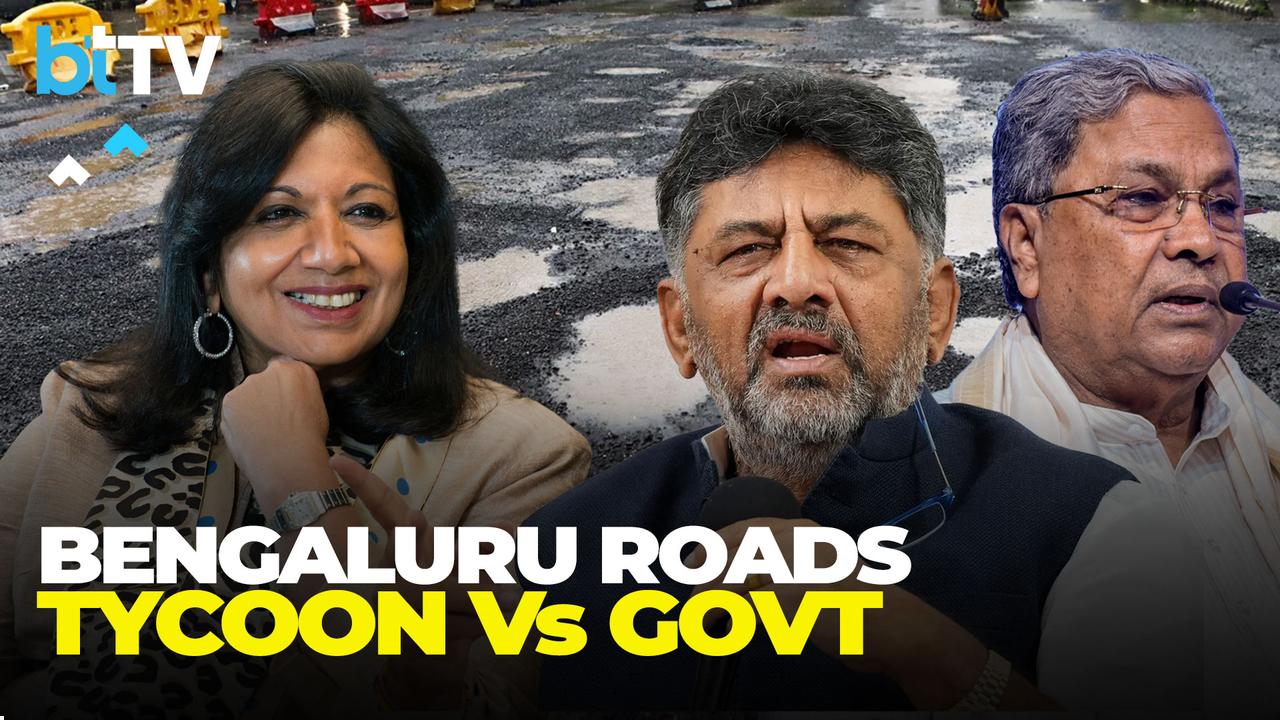Science
Kiran Mazumdar-Shaw Criticizes Bengaluru’s Poor Infrastructure

Bengaluru’s infrastructure issues have once again come to the forefront, thanks to a sharp critique from Kiran Mazumdar-Shaw, the founder of Biocon. During a recent incident, an overseas visitor expressed shock at the city’s road conditions and the accumulation of garbage, prompting Shaw to address her concerns publicly. She tagged prominent Karnataka leaders, including Chief Minister Siddaramaiah, Deputy Chief Minister DK Shivakumar, and Minister Priyank Kharge, calling for immediate action and accountability regarding the city’s deteriorating infrastructure.
In response, Deputy Chief Minister Shivakumar questioned Shaw’s long absence from the ongoing discourse, suggesting that she had been silent on these issues for the past 25 years. Industries Minister MB Patil added that Shaw should consider using her company’s corporate social responsibility (CSR) funds to address local infrastructure needs before making public statements. This exchange highlights the tension surrounding the management of Bengaluru, often referred to as India’s Silicon Valley.
Political Tensions and Infrastructure Accountability
The backlash from government officials has not deterred Shaw. She remains adamant about the urgent need for change and has emphasized that Bengaluru requires focused attention to its infrastructure challenges. The city has been plagued by potholes, traffic congestion, and inadequate waste management, which have drawn criticism from residents and visitors alike.
Veteran tech leader Mohandas Pai came to Shaw’s defense, arguing that the priorities of Karnataka’s government have shifted from development to political maneuvering. He pointed out that while Bengaluru struggles, neighboring states like Andhra Pradesh successfully attract significant investments, such as Google’s AI data center. This disparity raises concerns about the long-term implications for Karnataka’s economic growth and competitiveness.
The situation has prompted the opposition party, the Bharatiya Janata Party (BJP), to accuse the Congress-led government of neglecting the city’s pressing issues. The ongoing debate underscores a critical question: how will the Karnataka government prioritize infrastructure development in the face of political challenges?
Public Response and Future Implications
Bengaluru residents are increasingly vocal about their frustrations with the state of the city. Many feel that the government’s failure to address these issues directly impacts their quality of life. Shaw’s comments resonate with a broader audience that yearns for accountability from elected officials.
As the discussion continues, the focus will remain on whether Karnataka’s leadership will take decisive steps to improve infrastructure. With the spotlight on Bengaluru, the actions taken—or not taken—by state leaders in the coming months will likely shape the city’s future and its reputation as a global tech hub.
In summary, Kiran Mazumdar-Shaw’s critique has sparked a significant dialogue about Bengaluru’s infrastructure challenges. The responses from government officials reveal underlying tensions and highlight a crucial need for effective governance in one of India’s most important cities.
-

 World3 months ago
World3 months agoSBI Announces QIP Floor Price at ₹811.05 Per Share
-

 Lifestyle3 months ago
Lifestyle3 months agoCept Unveils ₹3.1 Crore Urban Mobility Plan for Sustainable Growth
-

 Science3 months ago
Science3 months agoNew Blood Group Discovered in South Indian Woman at Rotary Centre
-

 Sports3 months ago
Sports3 months agoBroad Advocates for Bowling Change Ahead of Final Test Against India
-

 World3 months ago
World3 months agoTorrential Rains Cause Flash Flooding in New York and New Jersey
-

 Top Stories3 months ago
Top Stories3 months agoKonkani Cultural Organisation to Host Pearl Jubilee in Abu Dhabi
-

 Science3 months ago
Science3 months agoNothing Headphone 1 Review: A Bold Contender in Audio Design
-

 Top Stories3 months ago
Top Stories3 months agoAir India Crash Investigation Highlights Boeing Fuel Switch Concerns
-

 Sports3 months ago
Sports3 months agoCristian Totti Retires at 19: Pressure of Fame Takes Toll
-

 Business3 months ago
Business3 months agoIndian Stock Market Rebounds: Sensex and Nifty Rise After Four-Day Decline
-

 Politics3 months ago
Politics3 months agoAbandoned Doberman Finds New Home After Journey to Prague
-

 Top Stories3 months ago
Top Stories3 months agoPatna Bank Manager Abhishek Varun Found Dead in Well









